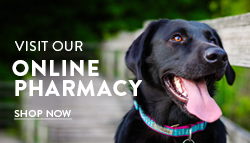Blog
Plenty of people like to use potpourri to add a pleasant scent to their home, particularly those who are pet parents. This is often because animals have their own, unique scents and the smell of having an animal in your home, although not necessarily unpleasant, can make home owners feel self-conscious.
Unfortunately, many animals, and dogs in particular, will happily try munching anything around their home that looks like it might be edible – your potpourri included. And who can blame them – after all, it looks pretty and smells delicious! Nevertheless, potpourri is definitely something that isn’t diet-friendly for your furbaby and eating it could have severe consequences.
What is potpourri?
Potpourri is essentially a mixture of a range of different dried herbs and flowers, placed into a dish or similar vestibule somewhere in your home, so that their scent permeates the air. There are a huge variety of blends of potpourri available, each emitting a slightly different fragrance depending on the combination of herbs and flowers that have been used. Many types of potpourri are artificially colored, making it virtually impossible to determine which parts of the potpourri are toxic and which are not.
How toxic is potpourri to my pet?
The exact toxicity of potpourri can vary immensely, and is largely dependant on which plants are in it. However, even non-toxic plants used in potpourri can cause your pet to experience a reaction similar to that of an allergy. Occasionally, blends of potpourri can include harder natural products such as bark chippings or parts of pine cone. These do not crumble to the same extent as regular potpourri plants and so present a potential choking hazard, as they could become lodged in your pet’s throat. They can also scratch the walls of the esophagus if they are successfully swallowed, leaving your pet with a painful, sore throat.
Potpourri is also now available in liquid or oil form. However, this is still extremely toxic to your pet. As such, we recommend that your pet is never left unattended around any form of potpourri.
Symptoms of potpourri poisoning
If you believe that your pet may have ingested either dry or liquid form potpourri, you should seek the advice of a veterinarian as soon as possible. Prompt treatment is essential if your pet is to make a full recovery. You should also watch out for the following symptoms:
- Dehydration
- Difficulty breathing
- Drooling
- Gagging
- Lethargy
- Loss of appetite
- Loss of regular coordination
- Muscle tremors
- Pawing at the mouth and face
- Redness and/or burning on the lips, tongue or skin
- Seeming to be in pain
- Weakness
Diagnosing potpourri poisoning in pets
If our vet advises you to bring your pet in – and he likely will – you should ensure that you take with you any samples of the potpourri that your pet may have eaten, as well as any packaging that you have.
To diagnose whether your pet has been exposed to potpourri toxins, our vet will undertake a series of assessments of your pet, which may include a physical examination, a blood test, examination of your pet’s feces or vomit, a urine analysis, x-rays and ultrasound imaging. Further testing may also be required to determine if the toxins have had any effect on the liver or kidneys.
Treating exposure to potpourri toxins
Although it can be tempting to make your pet sick in an effort to get the toxins out, this should never be attempted without a professional veterinarian. Nevertheless, this may be one of the first courses of action taken when you attend your pet’s appointment with our vet.
If our vet considers the poisoning case to be very mild, you may be provided with an at-home treatment plan, that could include laxatives to eliminate the toxins quickly, and a diet that will promote healing in the digestive system. However, the exact course of treatment that your pet will be given will depend on the extent of his symptoms and the estimated severity of the poisoning.
Once your pet has started on the road to recovery, create a quiet, safe and comfortable place for him to rest, away from other pets.
If you are concerned about potpourri poisoning, seek professional advice as soon as possible by calling our regular or out of hours veterinarian at 201-205-2500 today.






